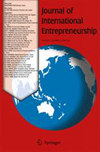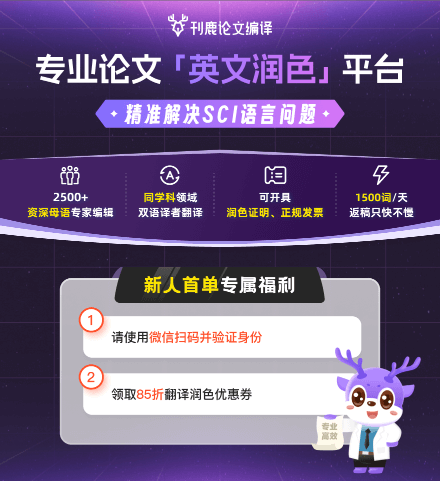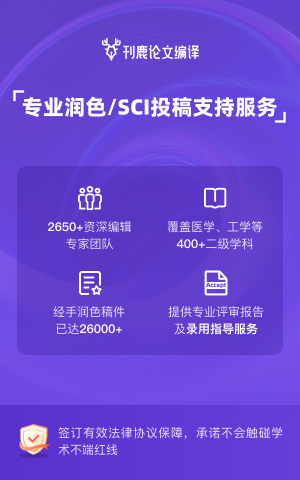
Journal of International Entrepreneurship
J INT ENTREP
期刊介绍
Competition in international markets was traditionally the realm of large companies, with smaller firms tending to remain local or regional. Internationalisation was an expansion option of interest to some enterprises, but seldom was it a competitive necessity. Many opted to avoid the uncertainties of competing in foreign markets, and simply kept their firms small and local. Traditional internationalisation theories, therefore, focused mainly on large multinational corporations, and were less pertinent to smaller firms. With the liberalisation of trade, however, domestic firms are threatened by international competitors that are penetrating formerly protected markets. Nowadays, internationalisation affects everyone, whether or not they wish to internationalise themselves. The threats and opportunities of internationalisation must be addressed.Globalisation is transforming the competitive environment of small and large players alike. As a result, internationalisation issues will continue to be increasingly important to business. Public policy agendas already include programmes to help entrepreneurs become successful at internationalisation. There is a growing need to understand internationalisation in the context of entrepreneurship, as well as large multinationals.Knowledge of how, when and why firms internationalise - either incrementally or not - will surely be the focus of energetic researchers. Yet, up to now, academia has been lacking a journal dedicated to internationalisation issues. To fill this niche, the aforementioned editorial team wishes to offer an outlet for high-quality research addressing the opportunities and challenges intrinsic to internationalisation.The primary audience for this journal will be researchers of entrepreneurship and international business. In addition, readership is certain to include business-people and policy-makers.The editors invite submissions that analyse internationalisation, combining theore tical and empirical work. Researchers will be encouraged to conduct comparative studies, and to evaluate competing theories. The composition of the editorial team - including experts in international business and experts in entrepreneurship - is designed to avoid editorial bias. Every effort will be made to reach a first decision about a submission, within sixty days. Officially cited as: J Int Entrep
国际市场上的竞争传统上是大公司的领域,而较小的公司则倾向于保持地方性或区域性。国际化是一些企业感兴趣的扩张选择,但很少是竞争所必需的。许多人选择避免在外国市场竞争的不确定性,而只是保持他们的公司规模小和本地化。因此,传统的国际化理论主要关注大型跨国公司,而对小型企业的影响较小。然而,随着贸易自由化,国内企业受到国际竞争者的威胁,这些竞争者正在渗透以前受保护的市场。如今,国际化影响到每个人,无论他们是否希望自己国际化。我们必须正视国际化带来的威胁和机会,因为全球化正在改变大小企业的竞争环境。因此,国际化问题将继续对企业越来越重要。公共政策议程已经包括帮助企业家在国际化方面取得成功的计划。人们越来越需要在企业家精神以及大型跨国公司的背景下理解国际化。了解企业如何、何时以及为什么国际化--无论是渐进式的还是非渐进式的--肯定会成为精力充沛的研究人员关注的焦点。然而,到目前为止,学术界一直缺乏一份专门讨论国际化问题的期刊。为了填补这一空缺,上述编辑团队希望为高质量的研究提供一个出口,解决国际化内在的机遇和挑战。这本杂志的主要读者将是创业和国际商业的研究人员。此外,读者群肯定包括商界人士和政策制定者。编辑们邀请读者提交分析国际化的论文,将理论和实证工作结合起来。研究人员将被鼓励进行比较研究,并评估竞争理论。编辑团队的组成--包括国际商务专家和创业专家--旨在避免编辑偏见。将尽一切努力在60天内就申请作出第一次决定。正式引用为:国际企业杂志
| 年发文量 | 26 |
| 国人发稿量 | 1 |
| 国人发文占比 | 5.26% |
| 自引率 | 27.6% |
| 平均录取率 | - |
| 平均审稿周期 | - |
| 版面费 | US$2890 |
| 偏重研究方向 | BUSINESS- |
| 期刊官网 | https://www.springer.com/10843/?utm_medium=display&utm_source=letpub&utm_content=text_link&utm_term=null&utm_campaign=HSSR_10843_AWA1_CN_CNPL_letpb_mp |
| 投稿链接 | https://www.editorialmanager.com/jien |
质量指标占比
| 研究类文章占比 | OA被引用占比 | 撤稿占比 | 出版后修正文章占比 |
|---|---|---|---|
| 100.00% | 28.33% | - | - |
相关指数
期刊预警不是论文评价,更不是否定预警期刊发表的每项成果。《国际期刊预警名单(试行)》旨在提醒科研人员审慎选择成果发表平台、提示出版机构强化期刊质量管理。
预警期刊的识别采用定性与定量相结合的方法。通过专家咨询确立分析维度及评价指标,而后基于指标客观数据产生具体名单。
具体而言,就是通过综合评判期刊载文量、作者国际化程度、拒稿率、论文处理费(APC)、期刊超越指数、自引率、撤稿信息等,找出那些具备风险特征、具有潜在质量问题的学术期刊。最后,依据各刊数据差异,将预警级别分为高、中、低三档,风险指数依次减弱。
《国际期刊预警名单(试行)》确定原则是客观、审慎、开放。期刊分区表团队期待与科研界、学术出版机构一起,夯实科学精神,打造气正风清的学术诚信环境!真诚欢迎各界就预警名单的分析维度、使用方案、值得关切的期刊等提出建议!
预警情况
查看说明
| 时间 | 预警情况 |
|---|---|
| 2025年03月发布的2025版 | 不在预警名单中 |
| 2024年02月发布的2024版 | 不在预警名单中 |
| 2023年01月发布的2023版 | 不在预警名单中 |
| 2021年12月发布的2021版 | 不在预警名单中 |
| 2020年12月发布的2020版 | 不在预警名单中 |
JCR分区 WOS分区等级:Q2区
| 版本 | 按学科 | 分区 |
|---|---|---|
|
WOS期刊SCI分区
WOS期刊SCI分区是指SCI官方(Web of Science)为每个学科内的期刊按照IF数值排
序,将期刊按照四等分的方法划分的Q1-Q4等级,Q1代表质量最高,即常说的1区期刊。
(2021-2022年最新版)
|
||
| BUSINESS | Q3 |
关于2019年中科院分区升级版(试行)
分区表升级版(试行)旨在解决期刊学科体系划分与学科发展以及融合趋势的不相容问题。由于学科交叉在当代科研活动的趋势愈发显著,学科体系构建容易引发争议。为了打破学科体系给期刊评价带来的桎梏,“升级版方案”首先构建了论文层级的主题体系,然后分别计算每篇论文在所属主题的影响力,最后汇总各期刊每篇论文分值,得到“期刊超越指数”,作为分区依据。
分区表升级版(试行)的优势:一是论文层级的主题体系既能体现学科交叉特点,又可以精准揭示期刊载文的多学科性;二是采用“期刊超越指数”替代影响因子指标,解决了影响因子数学性质缺陷对评价结果的干扰。整体而言,分区表升级版(试行)突破了期刊评价中学科体系构建、评价指标选择等瓶颈问题,能够更为全面地揭示学术期刊的影响力,为科研评价“去四唯”提供解决思路。相关研究成果经过国际同行的认可,已经发表在科学计量学领域国际重要期刊。
《2019年中国科学院文献情报中心期刊分区表升级版(试行)》首次将社会科学引文数据库(SSCI)期刊纳入到分区评估中。升级版分区表(试行)设置了包括自然科学和社会科学在内的18个大类学科。基础版和升级版(试行)将过渡共存三年时间,推测在此期间各大高校和科研院所仍可能会以基础版为考核参考标准。 提示:中科院分区官方微信公众号“fenqubiao”仅提供基础版数据查询,暂无升级版数据,请注意区分。
中科院分区
查看说明
| 版本 | 大类学科 | 小类学科 | Top期刊 | 综述期刊 |
|---|---|---|---|---|
| 暂无数据 | ||||














